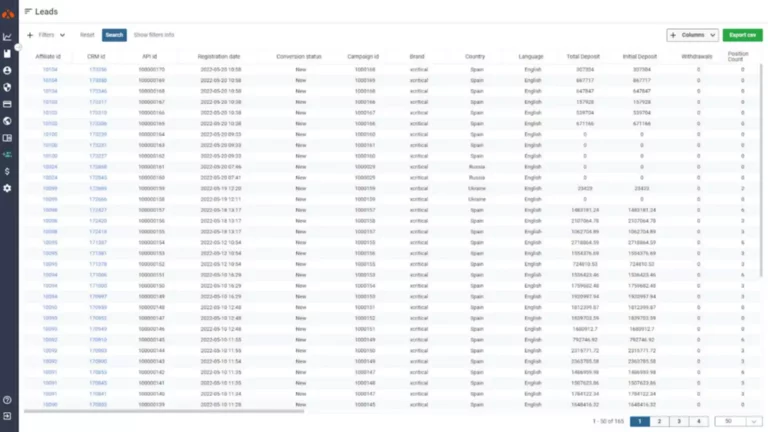Content
BNP Paribas recently introduced its first NDF algo for Asian currencies, adapting its existing algos to manage the nuances of the NDF market and giving clients the ability to automatically trade large NDF contracts. The bank has seen over $17bn of NDFs executed via algo since launching its NDF suite. The product removes the operational issues that new entrants need to concern themselves with, such as fixing and settlement AML Risk Assessments dates, allowing clients to concentrate on their market exposure. In order to avoid the restrictions imposed by the foreign currency in question, NDF is settled in an alternative currency. Non-deliverable forward trades can be thought of as an alternative to a normal currency forward trade.
Can someone explain what an NDF Trade is and what is their purpose?
What happens ndf meaning is that eventually, the two parties settle the difference between a contracted NDF price and the future spot rate for an exchange that takes place in the future. The risk that this company faces is that in the time between them agreeing to the sale and actually receiving payment, exchange rates could change adversely causing them to lose money. NDFs hedge against currency risks in markets with non-convertible or restricted currencies, settling rate differences in cash. An essential feature of NDFs is their implementation outside the native market of a currency that is not readily traded or illiquid. For example, if a particular currency cannot be transferred abroad due to restrictions, direct settlement in that currency with an external party becomes impossible. In such instances, the parties involved in the NDF will convert the gains or losses of the contract into a freely traded currency to facilitate the settlement process.
more stack exchange communities
While there is a premium to be paid for taking out an option trade, the benefits provided by their optional nature are significant. What non-deliverable forwards provide is the opportunity to protect a business (or an investor or individual if needs be) that is exposed to currency risk in a currency for which a normal forward trade is not possible. Non-deliverable forwards can be used where it is not actually possible to carry out a physical exchange of currencies in the same way as normal forward trade. https://www.xcritical.com/ Usually, the foreign currency is sent to the forward trade provider who converts it into the original company’s domestic currency and transfers it to them.
Why Should A Broker Offer NDF Trading?
As an Investopedia fact checker since 2020, he has validated over 1,100 articles on a wide range of financial and investment topics.
They are a way for businesses or investors to manage exposure to currencies they cannot physically hold or trade. Currency swaps are better used for long-term financing or for managing interest rate risk. Currency swaps help businesses with cross-border operations secure better borrowing rates while hedging against exchange rate fluctuations over a longer period. The fixing date is the date at which the difference between the prevailing spot market rate and the agreed-upon rate is calculated. The settlement date is the date by which the payment of the difference is due to the party receiving payment. Non-Deliverable Forwards (NDFs) play a pivotal role in the world of foreign exchange (Forex) trading.

They can be used by parties looking to hedge or expose themselves to a particular asset, but who are not interested in delivering or receiving the underlying product. Start by filling in the data for the Forward leg, including the NDF Rate. Then the system will fill in the same amount on the spot leg that is created at the same time where the NDF fixing rate later will be entered. Algorithms (algos) deliver all three but have traditionally been the reserve of major currencies only.
- As an Investopedia fact checker since 2020, he has validated over 1,100 articles on a wide range of financial and investment topics.
- The Indian Rupee, Korean Won, and New Taiwan Dollar accounted for 55% of total daily global NDF turnover of $258 billion as of April 2019, while onshore Renminbi accounts for another 5% of global NDF turnover.
- Asia accounts for three of the top four NDF currencies by volume globally, according to the Bank for International Settlements (BIS) Triennial Central Bank Survey.
- There are also active markets using the euro, the Japanese yen and, to a lesser extent, the British pound and the Swiss franc.
- With respect to pricing, the theoretical price is still determined bythe forward points which are derived by the relative interest rates to term of the contract.
- As said, an NDF is a forward contract wherein two parties agree on a currency rate for a set future date, culminating in a cash settlement.
Whereas with a normal currency forward trade an amount of currency on which the deal is based is actually exchanged, this amount is not actually exchanged in an NDF. The integration of clearing into NDF Matching enables easier access to the full book of liquidity in the venue for all participants and better transparency of the market. Cleared settlement brings innovation to the FX market, including simplified credit management, lower costs, and easier adoption by non-bank participants. The launch of NDF Matching brings together the benefits of an NDF central limit order book and clearing to offer a unique solution for the global foreign exchange market. Benefit from counterparty diversity and reduced complexity as you execute your NDF foreign exchange requirements.
You can use Foreign Exchange Forward Contracts to fix the future foreign exchange rate and have easier financial planning. This is the exchange rate on which the settlement calculation will be based. In our example, this could be the forward rate on a date in the future when the company will receive payment. This exchange rate can then be used to calculate the amount that the company will receive on that date at this rate. Non-deliverable forwards (NDFs), also known as contracts for differences, are contractual agreements that can be used to eliminate currency risk. While they can be used in commodity trading and currency speculation, they are often used in currency risk management as well.

The restrictions which prevent a business from completing a normal forward trade vary from currency to currency. However, the upshot is the same and that is they will not be able to deliver the amount to a forward trade provider in order to complete a forward trade. The more active banks quote NDFs from between one month to one year, although some would quote up to two years upon request. The most commonly traded NDF tenors are IMM dates, but banks also offer odd-dated NDFs. NDFs are typically quoted with the USD as the reference currency, and the settlement amount is also in USD. A non-deliverable swap (NDS) is an exchange of different currencies, between a major currency and a minor currency, which is restricted.
The products available are leveraged foreign exchanges, precious metals and energies, global stock indices, among others. For instance, Korea allows domestic financial institutions to participate in NDF trading and so the Korean Won NDF and onshore markets are closely integrated. In contrast, Malaysia authorities limit Malaysian Ringgit NDF trading while taking measures to deepen onshore foreign exchange markets. CNH FX Swap is a simultaneous purchase and sale, of identical amounts of one currency for another with two different value dates (normally spot to forward). The two parties agree a currency exchange on one day and simultaneously agree to reverse that deal on a date in the future.. That is, the two parties have the right to use the exchanged currency at a specific time.
A more diverse range of participants will change the liquidity profile and have a positive impact on the market, benefiting not just our customers but the market as a whole. As part of our venue streamlining initiative, we have launched a new NDF capability on the CLOB. Unlike existing services, all trades executed on the venue are submitted to LCH ForexClear for clearing. With LCH ForexClear acting as the Central Counterparty (CCP), it removes the necessity to have a centralised or bilateral credit model. NDFs are normally used to trade currencies with limited convertibility – i.e. currencies where it is not possible to transact a normal forward outright because the authorities in that country …
They are a derivative product used to hedge against currency risk in markets where currency conversion or remittance restrictions exist. This comprehensive guide will delve into the intricacies of NDFs, their uses, benefits, and how they function in the global financial landscape. Non-deliverable forwards are most useful and most essential where currency risk is posed by a non-convertible currency or a currency with low liquidity. In these currencies, it is not possible to actually exchange the full amount on which the deal is based through a normal forward trade.
Seasoned CFOs share strategies for managing financial and operational pressures of scaling. See how this leading pet insurance company streamlined its currency operations. Our trade matching will enable you to access firm pricing, achieve high certainty of execution and trade efficiently. FX Aggregator is reliable and cost-efficient, giving you seamless execution to the deepest market liquidity pools. For more information on how LSEG uses your data, see our Privacy Statement. You can adjust your preferences at any time through the preference link in any electronic communication that you receive from us.
Currency swaps involve multiple cash flows during the life of the contract, including periodic interest payments and the final re-exchange of principal. A typical example of currency risk in business is when a company makes a sale in a foreign currency for which payment will be received at a later date. In the intervening period, exchange rates could change unfavourably, causing the amount they ultimately receive to be less.
In our example, the fixing date will be the date on which the company receives payment. FXall is the flexible electronic trading platform that delivers choice, agility, efficiency and confidence that traders want, across liquidity access to straight-through processing. Where HSBC Innovation Banking markets any foreign exchange (FX) products, it does so a distributor of such products, acting as agent for HSBC UK Bank plc and/or HSBC Bank plc. An agreement that allows you to lock in a rate of exchange for a pre-agreed period of time, similar to a Forward or the far leg of a Swap Contract. With an NDS, it is not the case because the currencies are not convertible.